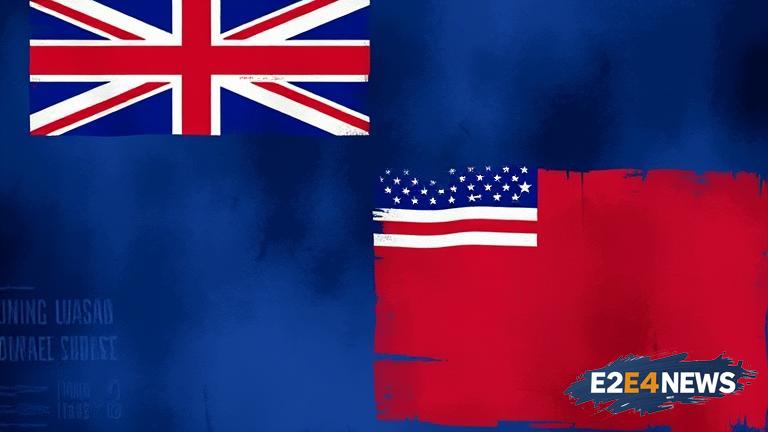The Australian government has declined a request from the United States to publicly declare its stance on a potential war over Taiwan. This decision comes as tensions between the US and China continue to escalate, with the US seeking to bolster its alliances in the Asia-Pacific region. Australia’s refusal to take a public stance on the issue is seen as an attempt to maintain a delicate balance in its diplomatic relationships with both China and the US. The US had been seeking a clear commitment from Australia on its position in the event of a conflict over Taiwan, but the Australian government has chosen to exercise caution. The decision is likely to be viewed as a disappointment by the US, which had been hoping to secure a strong statement of support from its Australian ally. However, the Australian government is keen to avoid antagonizing China, with which it has significant trade and economic ties. China is Australia’s largest trading partner, and the Australian government is wary of taking any action that could jeopardize this relationship. At the same time, Australia is also a key ally of the US, and the government is seeking to navigate a complex web of diplomatic relationships. The situation is further complicated by the fact that Australia has a long-standing commitment to defend Taiwan in the event of an attack, but this commitment is not explicitly stated in any public documents. The Australian government has chosen to maintain a policy of strategic ambiguity on the issue, refusing to publicly confirm or deny its intentions. This approach is seen as a way of avoiding provoking China, while also maintaining a degree of flexibility in its diplomatic relationships. The US, on the other hand, has been seeking to take a more robust stance on the issue, with the Biden administration publicly committing to defend Taiwan in the event of an attack. The Australian government’s decision is likely to be seen as a reflection of its desire to maintain a independent foreign policy, rather than simply following the lead of its US ally. The situation highlights the complex and nuanced nature of diplomatic relationships in the Asia-Pacific region, where countries are seeking to balance competing interests and avoid antagonizing powerful neighbors. As the situation continues to evolve, it is likely that the Australian government will face ongoing pressure from the US to clarify its position on the issue. However, for now, the government appears determined to maintain its policy of strategic ambiguity, in the hopes of avoiding a potentially damaging conflict.
